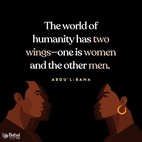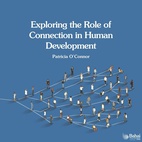The views expressed in our content reflect individual perspectives and do not represent the authoritative views of the Baha'i Faith.
As I continued my conversation with my online friend Jesse, we delved more into the difficult territory between belief, behavior, and being.
In Jesse’s mind, the late New Atheist thinker Chris Hitchens (God love him) hit the religion nail on the head when he posited that believing in miracles did not make one a better person.
Now, I have read Hitchens’ magnum opus, “God is not Great: How Religion Poisons Everything,” and I’ve seen him interviewed both on the subject of religion and on matters of history. Hitchens was brilliant when writing or speaking about history; I found his piece on Winston Churchill insightful and illuminating. Alas, he did not bring the same rationality to his study of religion. In interviews, his hostility and discomfort were evident not only in what he said, but in his body language and voice.
RELATED: Striving Through the Messy Muddle of Our Lives
I have a great personal fondness for Mr. Hitchens because at the age of nine, both of us had very similar experiences with Christians whose stated beliefs did not match their behavior toward other human beings. Mr. Hitchens lost faith in the church and became an atheist (he referred to himself as a specifically Protestant atheist); I lost faith in the state of the Christian faith as an institution and ultimately became a Baha’i.
While he lost his belief in God as a result of his experience, I found mine deepened and strengthened. I found this both sad and intriguing.
Christopher Hitchens’ polemics — indeed, the title he chose for his most popular work — reminded me of this commentary from Abdu’l-Baha in his book The Secret of Divine Civilization:
… the principles of the Divine religions can hardly be evaluated by the acts of those who only claim to follow them. For every excellent thing can still be diverted to the wrong ends. A lighted lamp in the hands of an ignorant child or of the blind will not dispel the surrounding darkness nor light up the house — it will set both the bearer and the house on fire.
In Chapter 13 of “God is Not Great,” Hitchens asked if believing that Buddha was born from a slit in his mother’s side would cause someone to act more charitably. His answer, obviously, was no. Appreciating the sharpness of his mind, I anticipated the dropping of the other shoe — but he had no other shoe. Unfortunately, his thought process stopped right there.
Here’s the other shoe: Of course, believing in a particular dogma or attending endless services or performing X number of rituals will not cause a person to be more charitable or more loving or more kind or more rational. But truly following the prescriptive teachings of Gautama Buddha, to use Hitchens’ example, would.
The words of Buddha recorded in the first chapter of the Dhammapada (1:1-5) demonstrate:
Our life is shaped by our mind; we become what we think. Suffering follows an evil thought as the wheels of a cart follow the oxen that draw it. Our life is shaped by our mind; we become what we think. Joy follows a pure thought like a shadow that never leaves. “He was angry with me, he attacked me, he defeated me, he robbed me” — those who dwell on such thoughts will never be free from hatred. “He was angry with me, he attacked me, he defeated me, he robbed me” — those who do not dwell on such thoughts will surely become free from hatred. For hatred can never put an end to hatred; love alone can. This is an unalterable law.
Buddha also famously said:
It is indeed a fact that salvation cannot come from the mere sight of Me. It demands strenuous efforts in the practice of Dharma. … A man must take medicine to be cured; the mere sight of the physician is not enough. – Buddhacarita XXV 33:4
Reflect on that last line. This is what every teacher, messenger, prophet, and manifestation of God has taught. You have to walk the walk, not just talk the talk. If there was one thing Christ was clear on, it was that:
Not everyone who says to Me, “Lord, Lord,” shall enter the kingdom of heaven, but he who does the will of My Father in heaven. Many will say to Me in that day, “Lord, Lord, have we not prophesied in Your name, cast out demons in Your name, and done many wonders in Your name?” And then I will declare to them, “I never knew you; depart from Me, you who practice lawlessness!” – Matthew 7:21-23
This, by the way, follows the point Christ makes that you know whether something or someone is true or false by their fruits. In other words, we must put the principles we are taught into action in order for them to bear fruit, to have an effect.
RELATED: Why We Need to Start Thinking in a Win-Win Mindset
No less a luminary of 20th Century atheist philosophy than Bertrand Russell wrote in his essay “Mysticism and Logic”: “Everyone knows that to read an author simply in order to refute him is not the way to understand him …”
This seems a reasonable standard for seeking to understand reality or truth. Baha’u’llah expressed his standard for seeking truth in a passage most Baha’is refer to simply as the Tablet of the True Seeker, part of a larger volume I referenced earlier — The Book of Certitude:
… O My brother! When a true seeker determineth to take the step of search in the path leading unto the knowledge of the Ancient of Days, he must, before all else, cleanse his heart, which is the seat of the revelation of the inner mysteries of God… He must so cleanse his heart that no remnant of either love or hate may linger therein, lest that love blindly incline him to error, or that hate repel him away from the truth.

















Comments
Sign in or create an account
Continue with Googleor